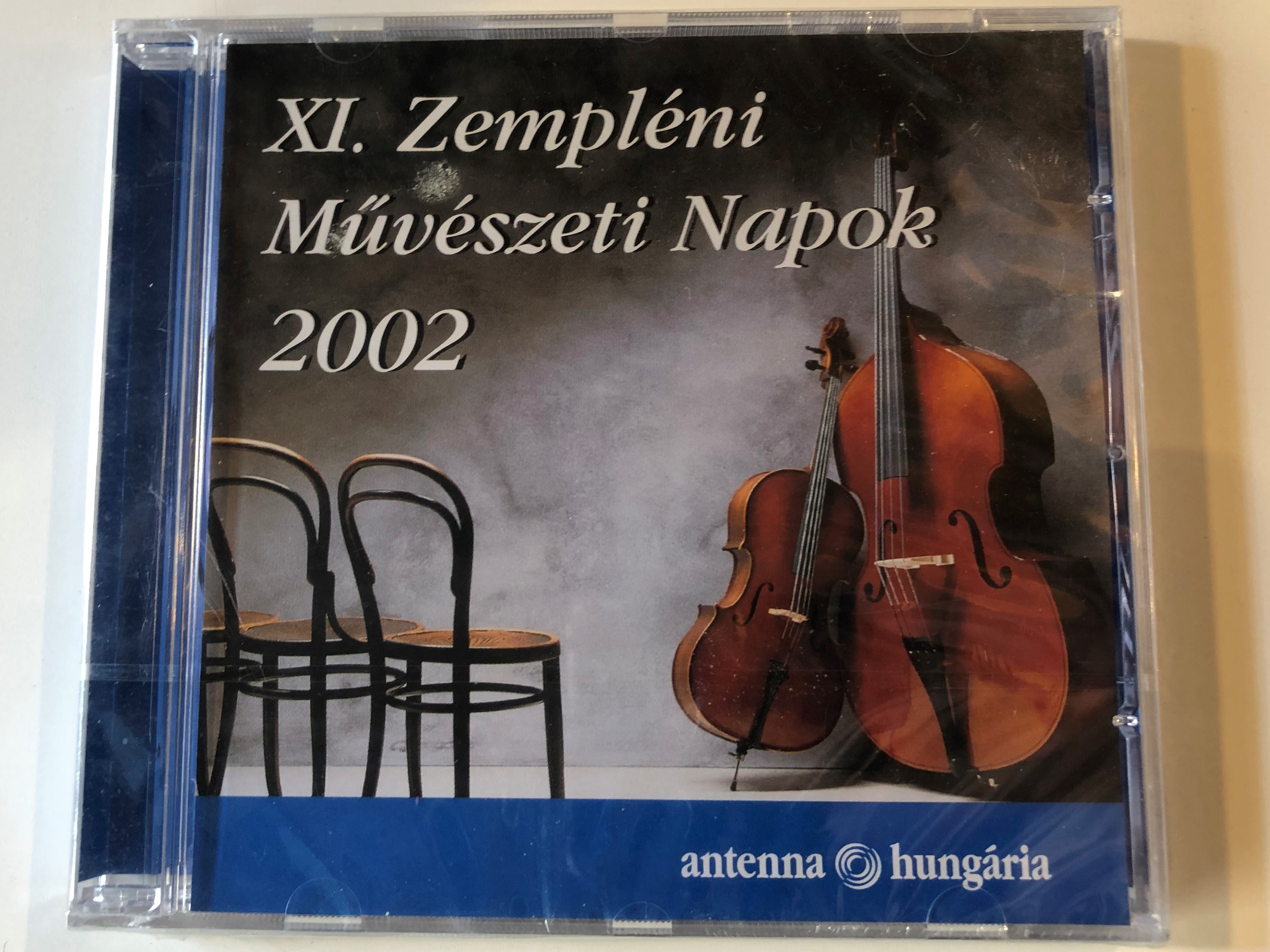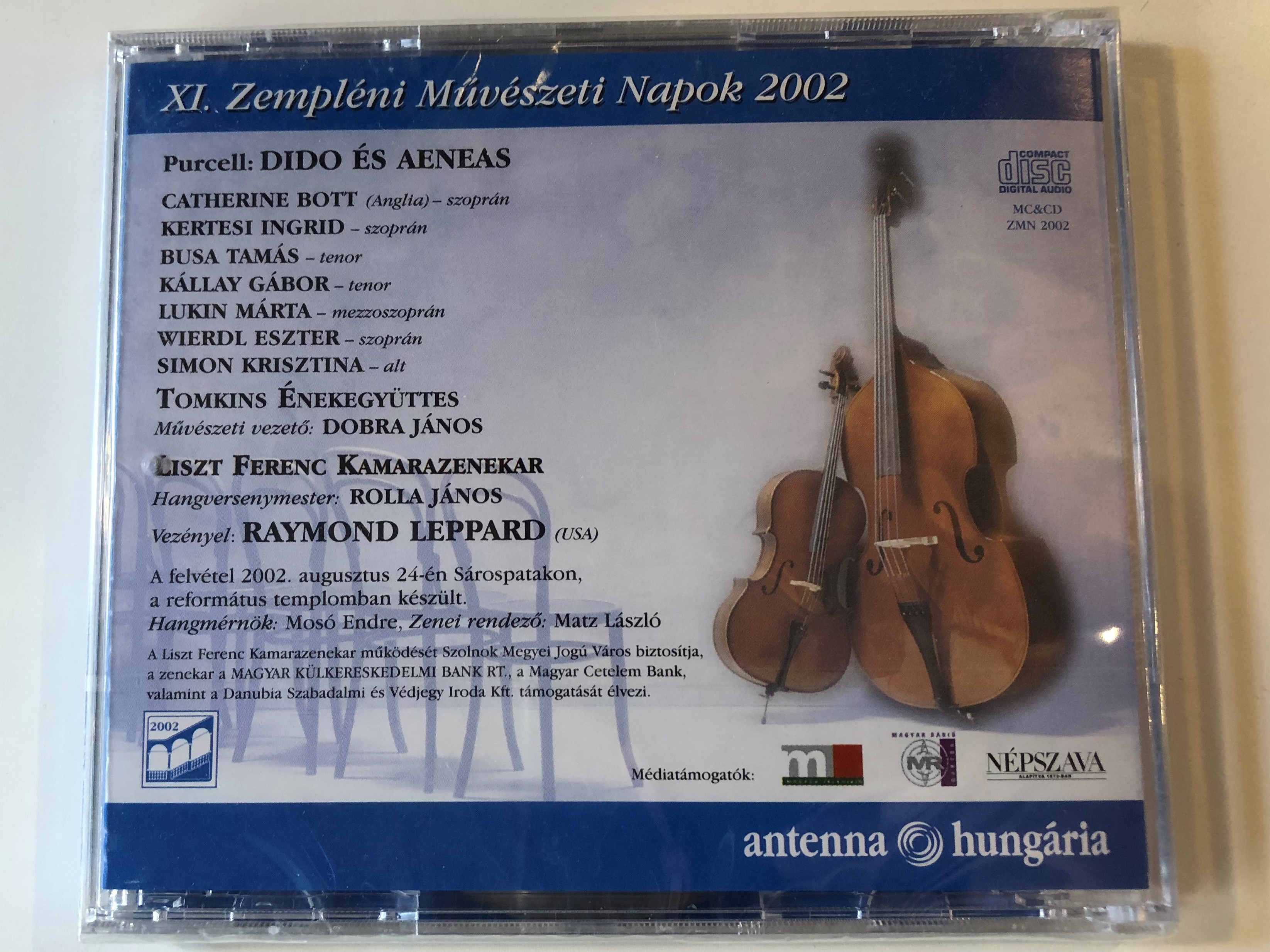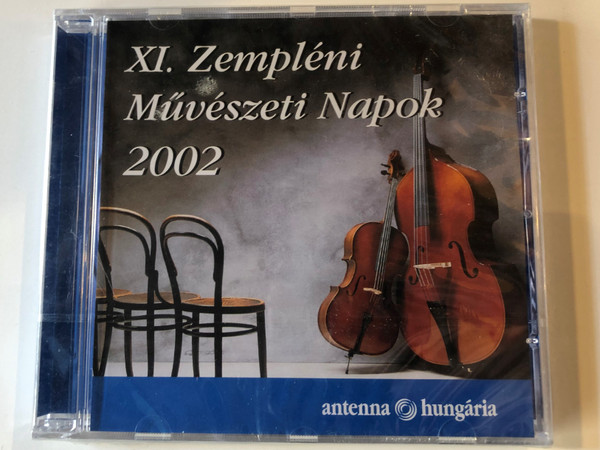Product Overview
XI. Zempleni Muveszeti Napok 2002 / Henry Purcell: Dido and Aeneas / Antenna Hungária Audio CD 2002
UPC 5999882817194
ZMN 2002
Zempléni Művészeti Napok az Antenna Hungária támogatásával
A Rolla János vezette Liszt Ferenc Kamarazenekar a házigazda!
Recorded at Sarospatak 2002 August 24 at the Reformed Church.
CATHERINE BOTT (Anglia) - szoprán
KERTESI INGRID - szoprán
BUSA TAMÁS - tenor
KÁLLAY GÁBOR - tenor
LUKIN MÁRTA - mezzo szoprán
WIERDL ESZTER - szoprán
SIMON KRISZTINA - alt
TOMKINS ÉNEKEGYÜTTES
Měvészeti vezető: Dobra János
LISZT FERENC KAMARAZENEKAR
Hangversenymester: Rolla János
Conductor / Vezényel: RAYMOND LEPPARD (USA)
Tracklist:
| 1 | Purcell: Dido Es Aeneas |
Dido and Aeneas (Z. 626) is an opera in a prologue and three acts, written by the English Baroque composer Henry Purcell with a libretto by Nahum Tate. The dates of the composition and first performance of the opera are uncertain. It was composed no later than July 1688, and had been performed at Josias Priest's girls' school in London by the end of 1689. Some scholars argue for a date of composition as early as 1683. The story is based on Book IV of Virgil's Aeneid. It recounts the love of Dido, Queen of Carthage, for the Trojan hero Aeneas, and her despair when he abandons her. A monumental work in Baroque opera, Dido and Aeneas is remembered as one of Purcell's foremost theatrical works.[6] It was also Purcell's only true opera, as well as his only all-sung dramatic work. One of the earliest known English operas, it owes much to John Blow's Venus and Adonis, both in structure and in overall effect.
The influence of Cavalli's opera Didone is also apparent. Both works use the prologue/three acts format and there are similarities between, for instance, Mercury's solo in Didone and the solo "Come away fellow sailors" in Purcell's work.
- Alto Vocals – Simon Krisztina
- Art Direction – Dobra János
- Choir – Tomkins Énekegyüttes
- Conductor – Raymond Leppard
- Directed By – Matz László
- Engineer – Mosó Endre
- Ensemble – Liszt Ferenc Kamarazenekar
- Mezzo-soprano Vocals – Lukin Márta
- Soprano Vocals – Catherine Bott, Kertesi Ingrid, Wierdl Eszter
- Tenor Vocals – Busa Tamás, Kállay Gábor
Purcell: Dido és Aeneas
Az opera egy előkelő londoni leánynevelő-intézet számára készült 1689-ben. Szövegét Nahum Tate írta Vergilius Aenis című eposza alapján. Bemutatója 1689 decemberében volt a chelsea-i Leányiskolában.
A történet kiváló lehetőségeket kínált Purcell számára, hogy jellem- és helyzetábrázoló tehetségét bemutassa.
Az egész mű bővelkedik szebbnél szebb részletekben. Ezek sorából is kiemelkedik Dido búcsúéneke. A darab az olasz lamentók stílusát követve egy ötütemes, lefelé hajló, kromatikus indítású ostinato-basszus fölött teljesedik ki. A basszus téma összesen kilencszer jelenik meg. Az angolok ezt a passacagliára, illetve a chaconne-ra utaló eljárást „ground”-nak nevezték.
Az opera előadói apparátusa szerény. A hangszeres kíséretet két hegedű és a mélyhegedű, valamint a continuót játszó hangszerek adják, és hiányoznak a basszus szerepek.
A Dido és Aeneas Purcell egyetlen olyan színpadi darabja, amelyben nincsenek prózai részek.










